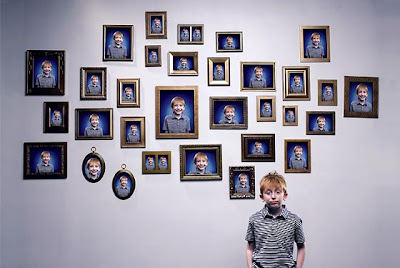 Since Thomas could walk, he has heard constantly that he’s smart. Not just from his parents but from any adult who has come in contact with this precocious child. When he applied to Anderson for kindergarten, his intelligence was statistically confirmed. The school is reserved for the top one percent of all applicants, and an IQ test is required. Thomas didn’t just score in the top one percent. He scored in the top one percent of the top one percent.
Since Thomas could walk, he has heard constantly that he’s smart. Not just from his parents but from any adult who has come in contact with this precocious child. When he applied to Anderson for kindergarten, his intelligence was statistically confirmed. The school is reserved for the top one percent of all applicants, and an IQ test is required. Thomas didn’t just score in the top one percent. He scored in the top one percent of the top one percent.
But as Thomas has progressed through school, this self-awareness that he’s smart hasn’t always translated into fearless confidence when attacking his schoolwork. In fact, Thomas’s father noticed just the opposite. “Thomas didn’t want to try things he wouldn’t be successful at,” his father says. “Some things came very quickly to him, but when they didn’t, he gave up almost immediately, concluding, ‘I’m not good at this.’ ” With no more than a glance, Thomas was dividing the world into two—things he was naturally good at and things he wasn’t.
For instance, in the early grades, Thomas wasn’t very good at spelling, so he simply demurred from spelling out loud. When Thomas took his first look at fractions, he balked. The biggest hurdle came in third grade. He was supposed to learn cursive penmanship, but he wouldn’t even try for weeks. By then, his teacher was demanding homework be completed in cursive. Rather than play catch-up on his penmanship, Thomas refused outright. Thomas’s father tried to reason with him. “Look, just because you’re smart doesn’t mean you don’t have to put out some effort.” (Eventually, he mastered cursive, but not without a lot of cajoling from his father.)
Why does this child, who is measurably at the very top of the charts, lack confidence about his ability to tackle routine school challenges? |The Rest @ New York Magazine|
--------
 Forget happiness, the in-crowd is being moved to tears by a new wave of super cool misery clubs, which give visitors (with the help of a pile of chopped onions) the chance to weep away their woes
Forget happiness, the in-crowd is being moved to tears by a new wave of super cool misery clubs, which give visitors (with the help of a pile of chopped onions) the chance to weep away their woes
Against a backdrop of crashing choral music and candlelight, a group of elaborately costumed young women are dabbing their eyes with a handkerchief, their mascara running to form black rivulets down their cheeks.
It is not difficult to see why they are so distressed: in front of them, a mound of pungent onions is being vigorously and elaborately chopped by a serious-looking young man in a tailcoat, and the fumes are overwhelming.
Even the male guests are wiping away the odd tear.
But then that's precisely the point. The 300 people in the crowd at this candlelit 17th-century wine vault, tucked away off a busy London thoroughfare, are here to do just that.
They are celebrating - if that is the right word, under the circumstances - the chance to express their more sorrowful side at a new club night called Loss. |The Rest @ The Daily Mail|




















































